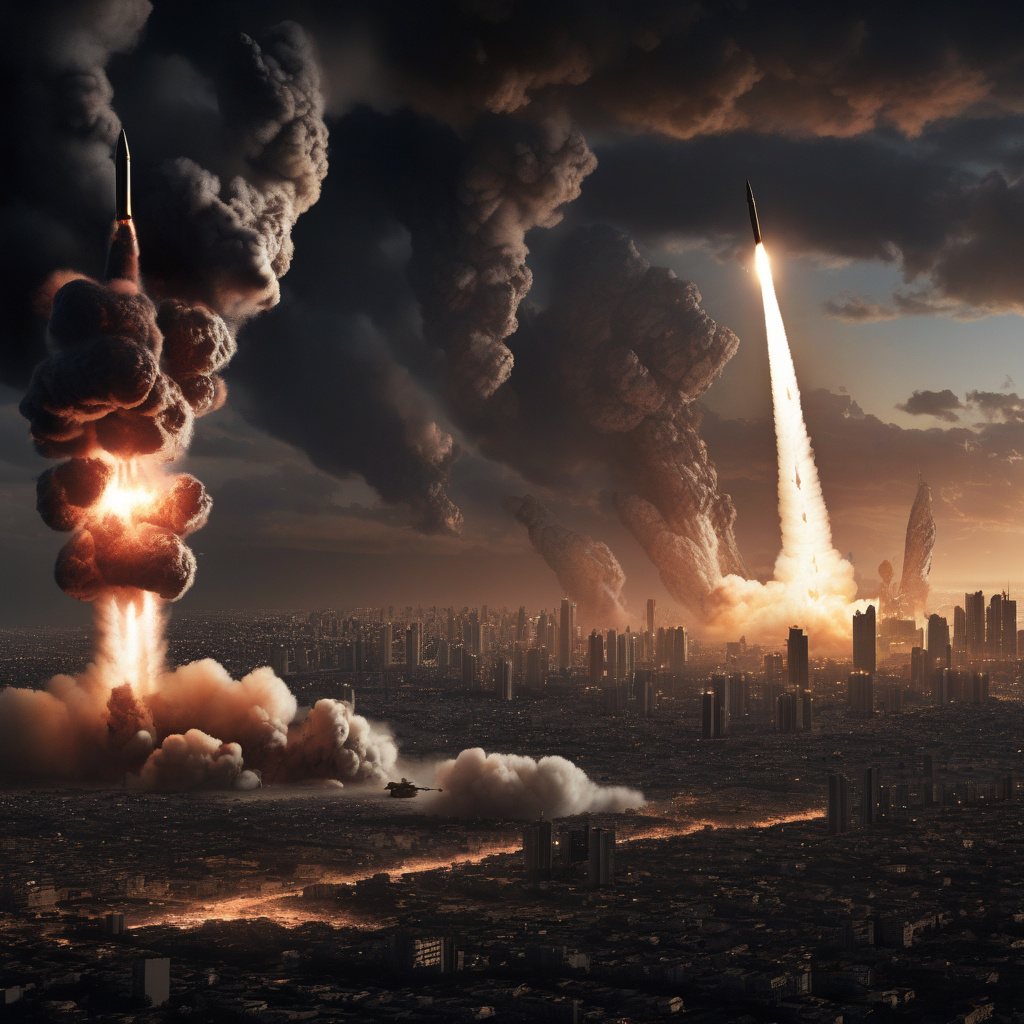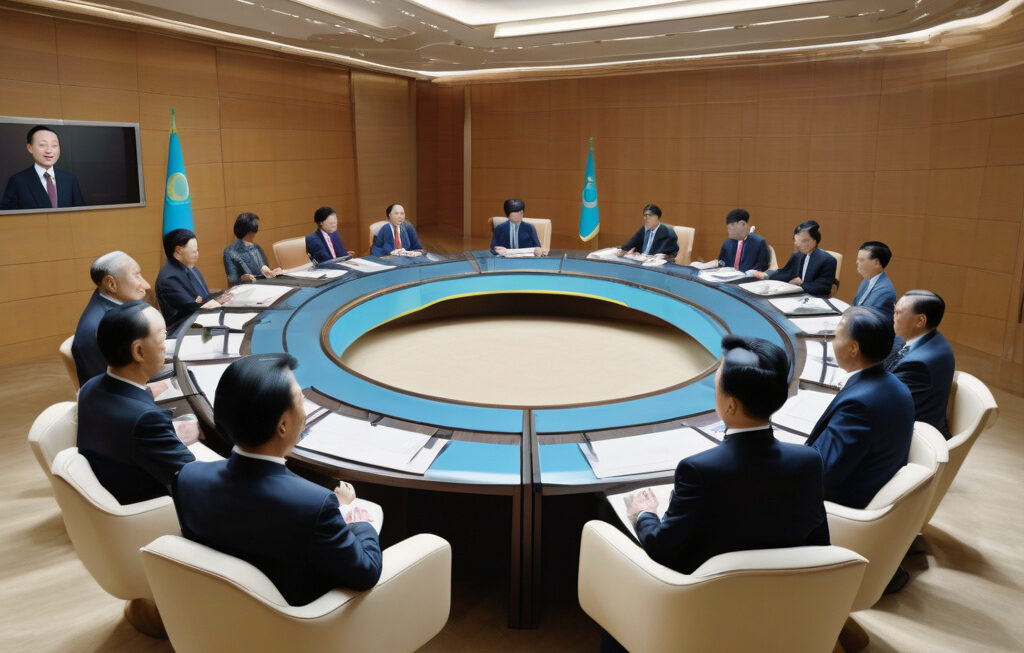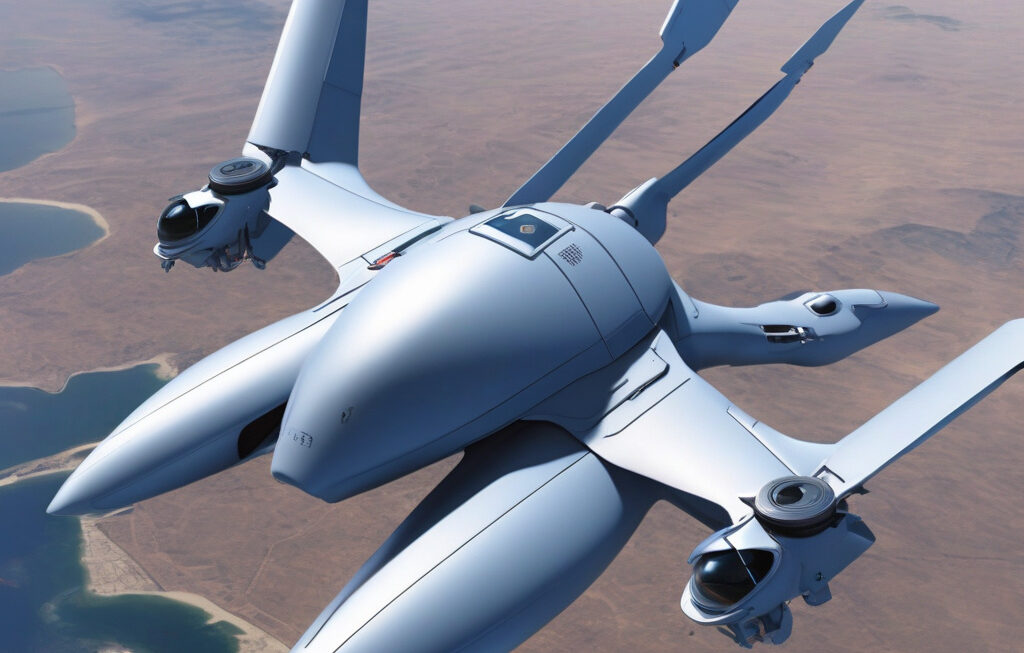Iran Retaliates with Missile Barrage on Tel Aviv After Israeli Nuclear Strikes
Explosions rocked Tel Aviv and Jerusalem on Friday night after Iran launched hundreds of ballistic missiles in retaliation for what it claims were Israeli nuclear strikes on its territory. The escalation of tensions between the two Middle Eastern nations has sent shockwaves across the globe, with fears of a full-blown conflict mounting.
The missile barrage, targeting key military installations and civilian areas in Tel Aviv, marks a significant escalation in the long-standing conflict between Iran and Israel. The images of the night sky illuminated by streaks of missile fire serve as a stark reminder of the volatile nature of the region and the potential for widespread devastation.
Iran’s decision to retaliate with such force underscores the seriousness of the situation and the country’s willingness to respond to perceived threats. The Iranian leadership has been vocal in condemning what it sees as Israeli aggression and has vowed to defend its sovereignty at all costs.
In response, Israeli officials have issued statements denouncing Iran’s actions as reckless and unwarranted. The Israeli Defense Forces have been placed on high alert, with air defense systems activated to intercept incoming missiles. The Israeli government has also reached out to international allies for support and solidarity in the face of Iranian aggression.
The implications of this latest escalation are profound, not just for the two countries involved but for the entire region. The risk of a wider conflict drawing in other regional powers is a real and alarming possibility. The delicate balance of power in the Middle East is now teetering on the brink, with the potential for catastrophic consequences.
As the world watches the events unfolding in the Middle East with bated breath, the need for diplomatic intervention and de-escalation efforts has never been more urgent. The specter of a full-scale war in one of the world’s most volatile regions is a scenario that must be avoided at all costs.
The international community, including the United Nations and key world powers, must step in to mediate and find a peaceful resolution to the crisis before it spirals out of control. Dialogue, not destruction, is the only way to ensure a sustainable peace in the region and prevent further loss of life.
The coming days will be critical in determining the course of events in the Middle East and whether the current crisis can be defused before it’s too late. The stakes could not be higher, and the need for cool heads and constructive dialogue has never been more pressing.
In the midst of uncertainty and fear, one thing is clear: the path to lasting peace in the Middle East lies in mutual respect, cooperation, and a commitment to resolving differences through peaceful means. Anything less risks plunging the region into a devastating conflict with far-reaching consequences.
#Iran #Israel #MiddleEast #Conflict #Peacekeeping












